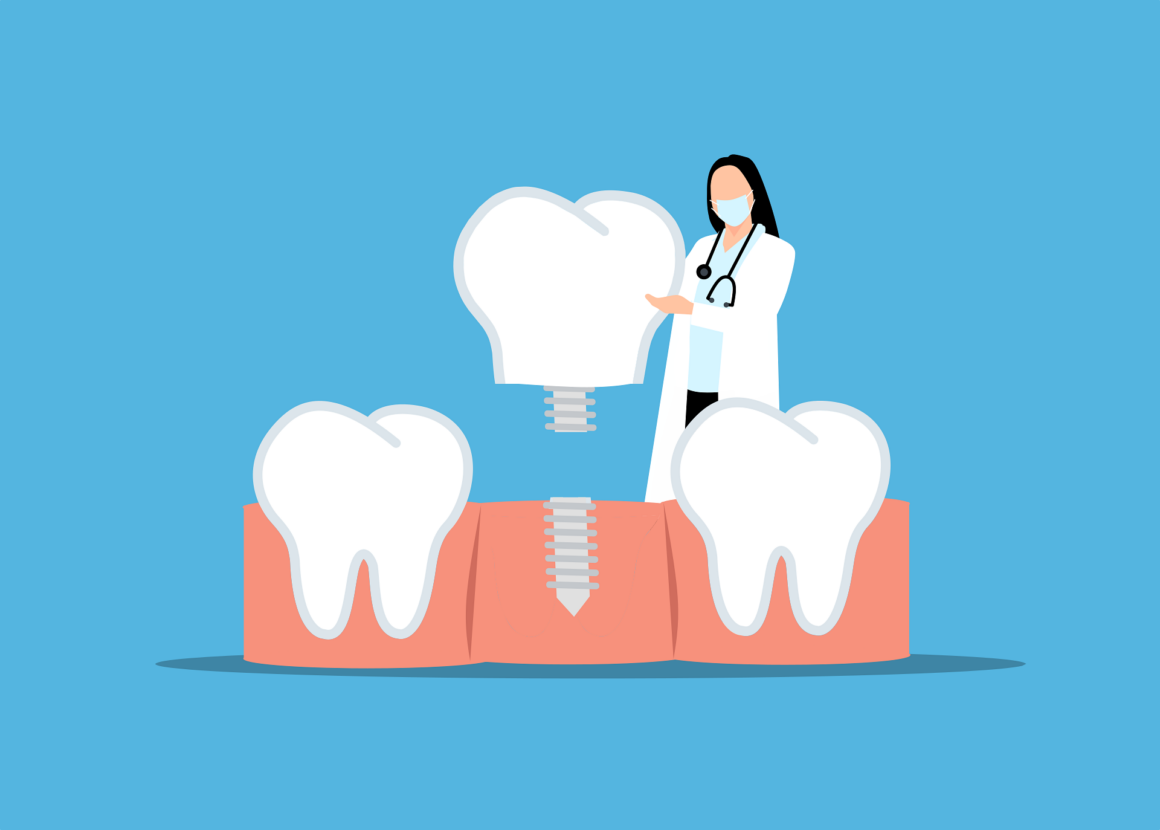Has your dentist suggested dental implants to replace missing teeth? If so, you’re likely filled with questions about the procedure, its benefits, and the associated costs. We’ll provide clear and concise answers to help you make an informed decision about your dental treatment plan. We’ll begin by exploring the advantages of dental implants, followed by an in-depth look at the procedure, and conclude by discussing the costs.
What are the Benefits of Dental Implants?
Let’s go back to the basics. It’s crucial to recall that having missing teeth carries numerous detrimental effects and disadvantages, whether aesthetically or functionally. Implants, serving as replacements for these missing teeth, naturally address these issues. Here are five advantages of dental implants:
- Restoring functionality: By replacing the missing teeth, dental implants restore chewing function, enabling more comfortable eating and speaking.
- Restoring aesthetics: Implants are designed to provide a foundation for dental crowns that look and function like natural teeth. They seamlessly blend into your smile, offering improved aesthetics and renewed confidence.
- Durability: With proper care, dental implants can last for a long time, making them a long-term treatment option.
- Bone Preservation: Unlike traditional dentures, implants stimulate bone growth and help preserve the jaw’s natural bone density. In fact, in the absence of implants, the bone will get resorbed over time, making implantation more difficult later.
- Improving Comfort: Permanently fixed in place, dental implants, along with a fixed prosthetic treatment, eliminate issues like instability or discomfort associated with removable dentures.
- Improved Oral Health: According to Dentist Decatur TX, unlike bridges, implants don’t require altering adjacent teeth, preserving the integrity of surrounding teeth.
What About the Procedure?
When it comes to the implant placement procedure, it is relatively straightforward, ranging from treatment planning to crown placement, and can be summarized as follows:
- Initial assessment: An experienced dentist conducts a comprehensive evaluation of your case, including a clinical examination, X-rays, and scans to assess bone density.
- Treatment planning: Based on the evaluation results, a personalized treatment plan is developed, considering your specific needs and overall health.
- Implant surgery: During this stage, the dental implant is surgically inserted into the jawbone. A healing period is necessary to allow the bone to fuse with the implant, a process called osseointegration.
- Impressions: Once the bone has securely fused with the implant, impressions are taken to fabricate a custom dental prosthesis.

- Abutment placement: A connector called an abutment is attached to the implant. It is on this abutment that the dental prosthesis will be fixed.
- Manufacturing and placement of crowns: Finally, custom dental crowns are manufactured and attached to the abutments, completing the process and restoring your smile and function.
The exact process may vary depending on the individual needs of the patient and the dentist’s recommendations.
How Much Will My Dental Implants Cost?
Regarding the cost of dental implants, it is common knowledge that prices can vary significantly between manufacturers and practitioners. This variation is influenced by the quality of the implant, its market standing, and, naturally, the professional fees of the practitioner. On average, costs (in Canada, for example) can range from $1,500 to $6,000 per implant.

It’s best to consult with a qualified practitioner to gain a comprehensive understanding of the expenses involved before embarking on the journey.
In Conclusion
Dental implants offer a transformative solution for individuals seeking to restore their smile, functionality, and confidence. Throughout this comprehensive guide, we’ve explored the benefits of dental implants, delved into the intricacies of the procedure, and shed light on the associated costs.
Armed with this knowledge, you are now better equipped to make an informed choice along with your trusted dental professional, who can provide personalized guidance and support.
About the Author
Dr. Suzanna Maria Sayegh is a Doctor in Dental Surgery who graduated from the Saint-Joseph University of Beirut. She holds a Master’s in Esthetic and Prosthetic Dentistry, a Master’s in Research and Biomaterials, and a University Diploma in Oral Pathology. She continuously seeks out professional development opportunities that allow her to remain aware and knowledgeable about new dental practices and the latest technologies being considered or used.



